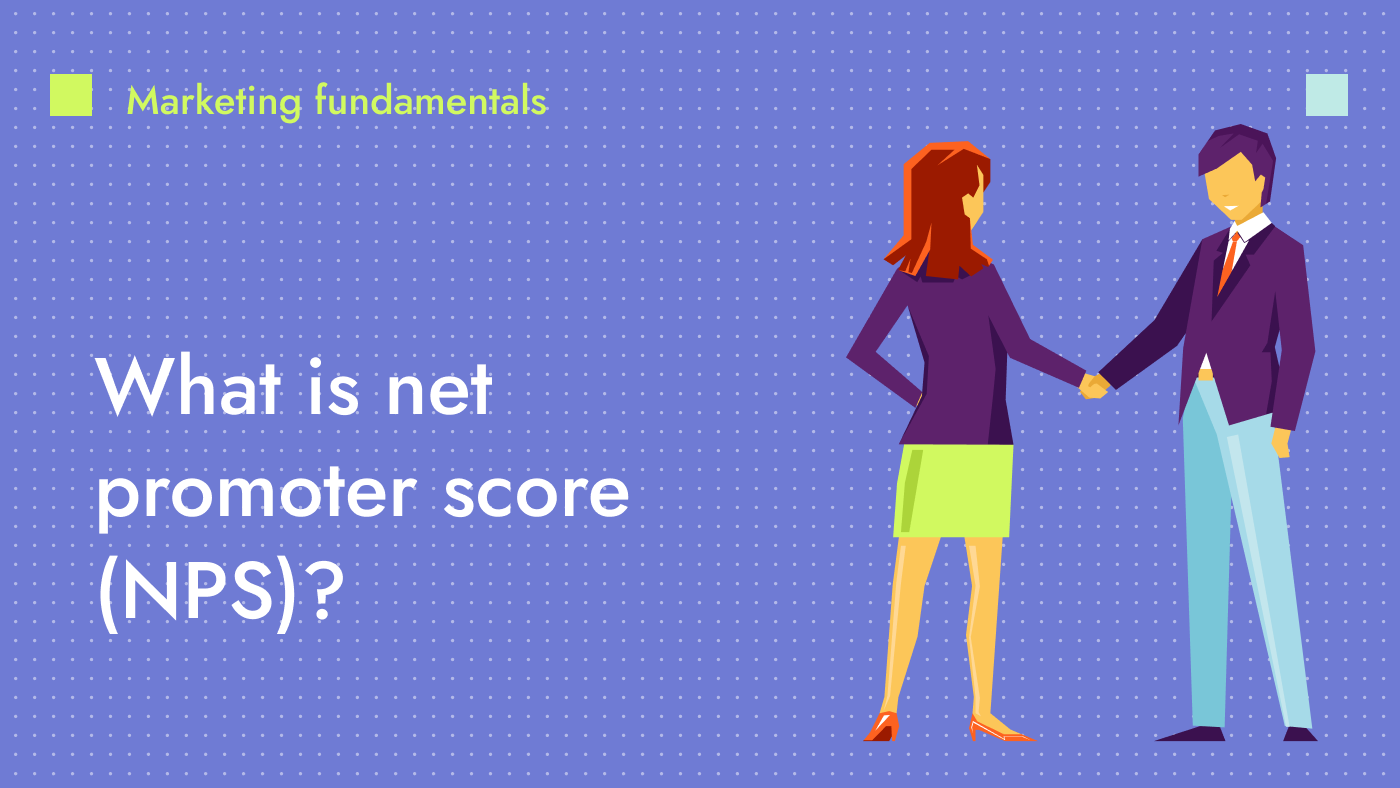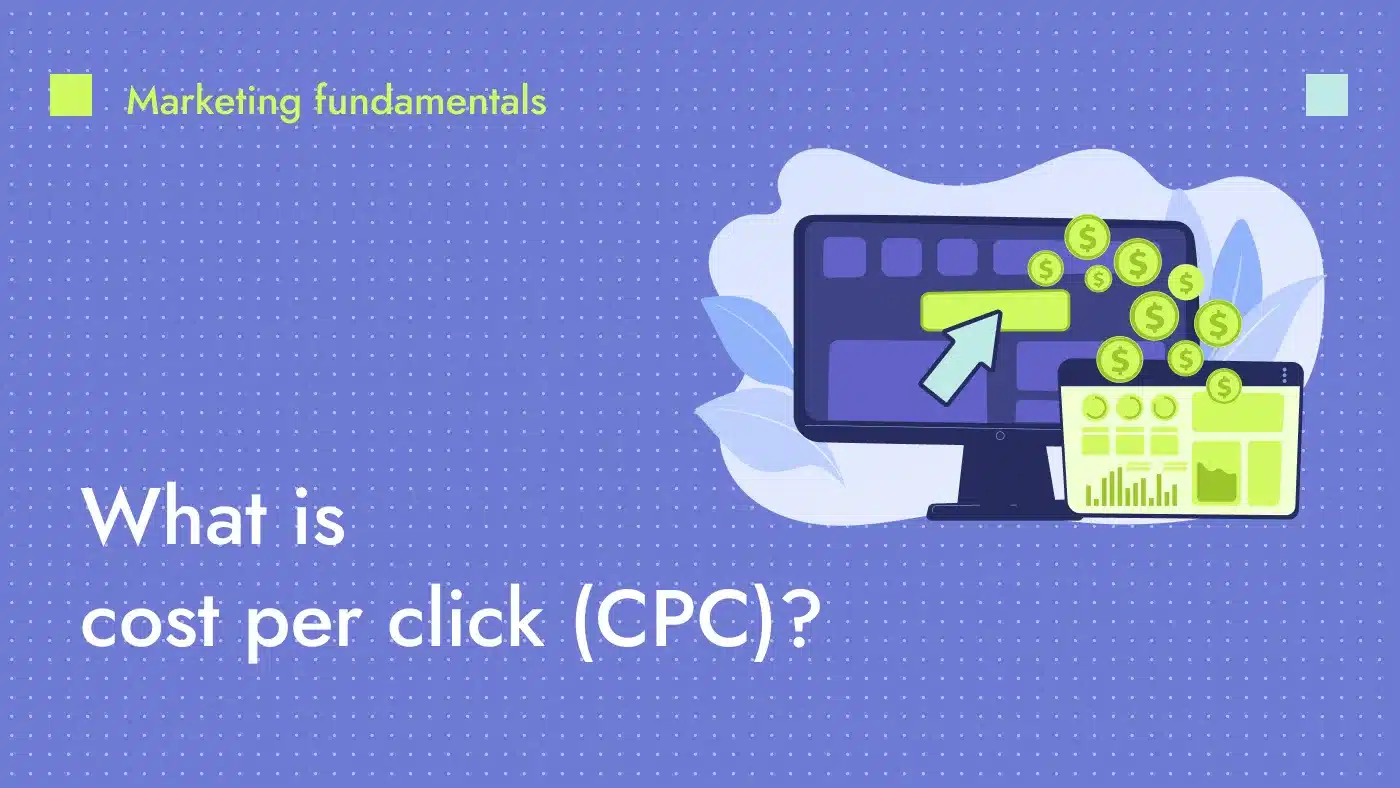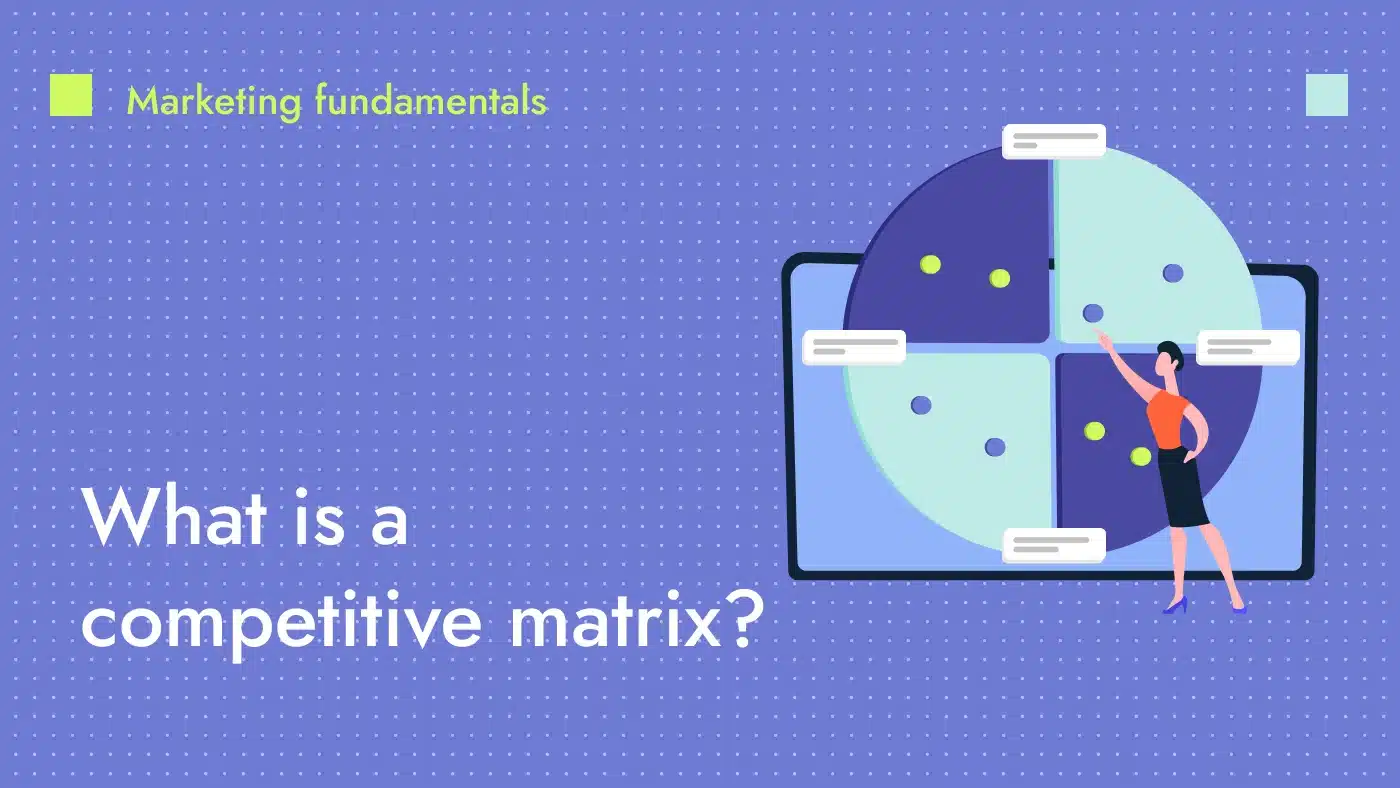Net promoter score (NPS) is a metric that measures how likely customers are to recommend your company to others.
NPS is based on the simple survey question:
- How likely are you to recommend our company/product/service to a friend or colleague?
Respondents are asked to rate their likelihood on a scale of 0 to 10, with 0 being “not at all likely” and 10 being “extremely likely.”
How to calculate net promoter score
To calculate your NPS, you subtract the percentage of detractors (those who rated 0-6) from the percentage of promoters (those who rated 9-10) and ignore the percentage of passives (those who rated 7-8). The resulting score ranges from -100 to +100, with a higher score indicating a higher level of customer loyalty and advocacy. For example, if half of the respondents are promoters, 20% are detractors, and 30% are passives, your NPS would be 50-20=30.
Here’s the formula:

What are the common uses for NPS data in B2B marketing?
NPS is a very effective and popular loyalty metric among marketers. In fact, according to The State of CX Management, 2022 report, 69% of respondents cite NPS as their core CX metric.
NPS data helps marketing teams to:
- Assess customer loyalty: NPS can help you understand how loyal your customers are and how likely they are to continue doing business with you. By tracking changes in your NPS over time, you can identify areas to improve your customer experience. In fact, offering an amazing customer experience is seen as powerful competitive advantage by 78.5% of CMOs surveyed by Martech Alliance.
- Improve customer retention: NPS can help you identify at-risk customers who may be considering leaving your company. By following up with these customers and addressing their concerns, you may be able to retain their business and prevent churn.
- Drive customer advocacy: NPS can help you identify customers who are likely to recommend your company to others. By targeting these customers with special offers or incentives, you can encourage them to become advocates for your brand and help you attract new customers.
☝️NPS is critical to understand how your company or offerings are perceived — and brand perception can make or break a deal.
NPS tools to create or analyze customer loyalty surveys
Here are three martech tools to help you gauge customer loyalty:
- Qualtrics: This NPS software helps businesses collect and analyze NPS survey responses. Organizations can measure NPS at different touch points, uncover loyalty drivers and predict customer behavior.
- SurveyMonkey: This popular survey platform offers templates for businesses to gather feedback from customers. It uses NPS to benchmark and analyze customer experiences.
- Retently: This platform provides businesses with the ability to send out NPS questions, track responses and analyze customer sentiment.
By using these NPS tools, businesses can better understand their customers’ needs and preferences and make data-driven decisions to improve satisfaction and loyalty.
☝️Asking the right questions can also help you win deals. Learn about the secrets of question-based selling in our guide.
Who is responsible for tracking NPS?
All teams play a part in improving NPS, but it’s typically the Customer Success Manager (CSM) who tracks NPS. The CSM should ensure customers have a positive experience and are satisfied with the product or service, either by monitoring customer feedback or identifying areas for improvement.
The CSM is responsible for creating and implementing strategies to improve customer satisfaction and increase the likelihood of customers recommending the product or service to others. These professionals also work closely with development, marketing and sales teams to ensure that the product or service is meeting customer needs and that any issues are resolved quickly.
☝️Your product can be the main driver of your company’s growth. Read our product lead growth guide to learn more.
Top 5 frequently asked questions on net promoter score
What is a good NPS score?
A good NPS score can vary depending on the industry and competition, but, in general, a score above 50 is considered good and a score above 70 is considered excellent. However, it’s important to keep in mind that NPS should be used in conjunction with other measures to gain a more comprehensive understanding of customer loyalty and satisfaction.
How often should I measure NPS?
The frequency of NPS measurement depends on your business needs and goals. It’s recommended to measure NPS at least quarterly to track trends and changes in customer sentiment over time. Companies may choose to measure NPS more frequently, such as monthly or even in real-time, to stay on top of customer feedback and make adjustments to their strategies accordingly.
How can I increase my NPS score?
To increase your NPS, it’s important to identify the root causes of low scores and take action to address them. This may involve improving product or service quality, providing better customer support and enhancing the overall customer experience. It’s also important to communicate with customers regularly and solicit feedback to ensure that their needs and expectations are being met.
Can the net promoter system be used for B2B companies?
Absolutely. NPS can be used for B2B companies just as effectively as it is used for B2C companies. The key is to identify the relevant decision-makers and stakeholders within the target organization and collect feedback from them. This approach might require conducting surveys, interviews or other forms of communication to gather insights on customer service satisfaction and loyalty.
Should I compare my NPS to industry benchmarks?
It’s more important to focus on improving your own net promoter score over time rather than comparing it to external benchmarks. After all, individual companies may have unique factors that influence their scores, while industry-specific NPS benchmarks are just averages. To give you an idea, the benchmark for B2B software is 40, but it’s 60 for B2B digital marketing agencies, per a SurveyMonkey report.






